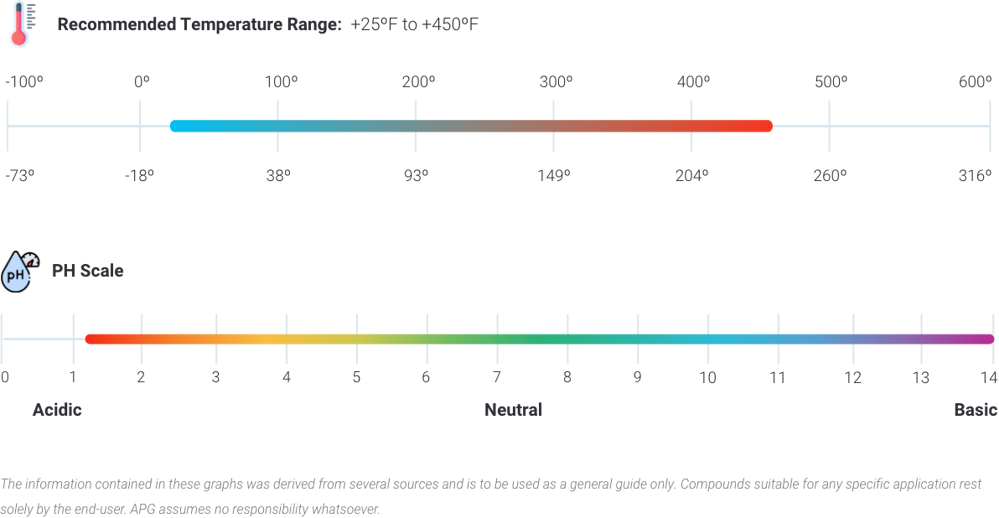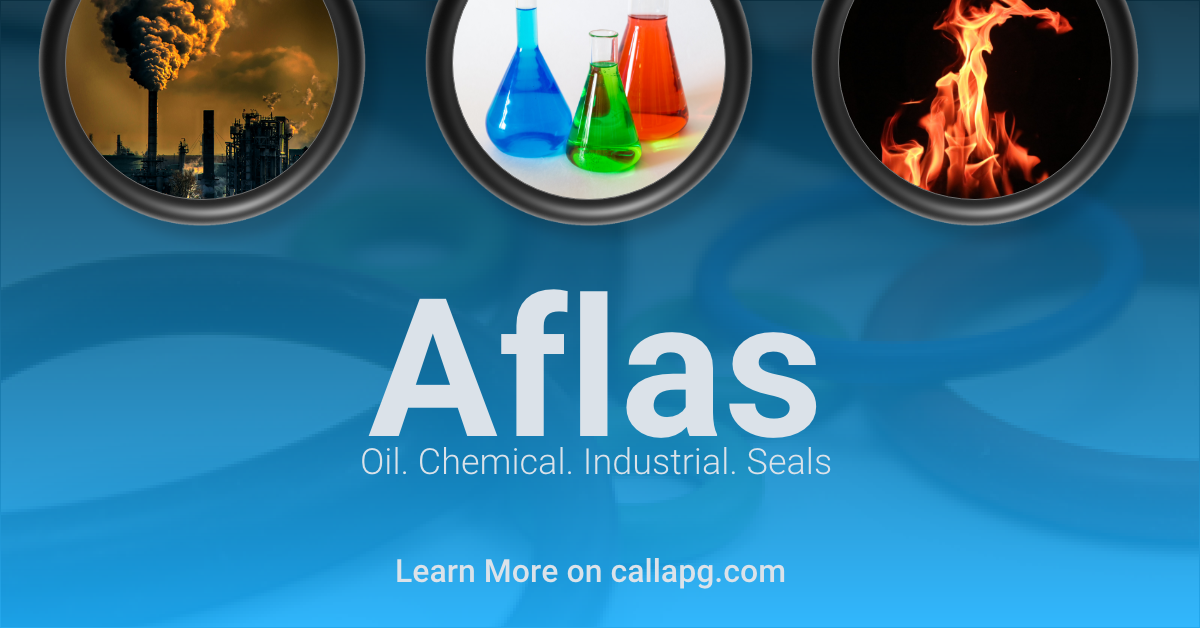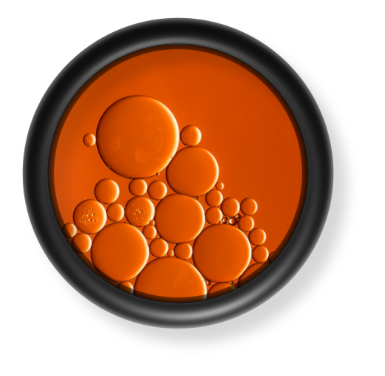
Aflas® is unique compared to other rubber materials. It has various resistive properties, including high temperatures, chemicals, electrical, and petroleum. This restiveness means you can easily apply it to many factors such as down holes, general steam, marine engines, and mechanical seals. Aflas® performs well in oil-based applications such as petroleum fluids, brake fluids, bases, phosphate esters, and engine oils. It is one of the best materials there is when sealing chemical products. This material is highly resistant to many different chemicals such as acids, amines, bases, and steam.


Bases & Chemical Resistance
Aflas has a wide range of chemical compatibility with many types of acids, amines, steam, bases, and other liquids and chemicals. The strong chemical compatibility is primarily due to its incredible pH resistance from strong acids at a 1.3 pH to a super basic 14 pH.
Oil & Petroleum
One of the industries that use this material is the oil and petroleum industry. Aflas has good resistance to most oils, crude, gasoline, and petroleum. Special oils such as engine oil, gear oil, and other automotive oils are generally mixed with a high amount of amine-based additives, so Aflas is a better material choice for sealing these oils.
Wide Temperature Range
Aflas has excellent heat resistance, allowing it to operate continuously at temperatures up to 400ºF and for a short time up to 450ºF. A unique property of Aflas is its ability to be placed in a flame. It will catch on fire; however, the burning will instantly stop once removed from the flame.

Brittle In Low Temperatures
One major disadvantage with Aflas is the inability to operate in temperatures below 25ºF. Continued exposure to cold weather can cause Alfas to lose flexibility and crack, often causing leaks to form. However, other o-rings, such as Ethylene Propylene (EPR) , PTFE, and Nitrile, which works great in extremely low temperatures.
In order to obtain more information about Aflas,
Contact APG Today!










 +1 800-888-5223
+1 800-888-5223

.png?width=352&name=PTFE%20(1).png)


.png)